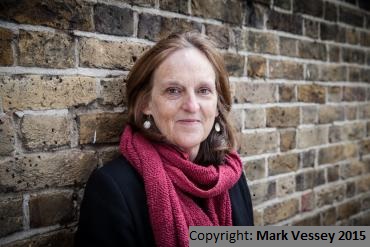 An Unboxed blog from Freya Turner, student blogger from the School of Literature, Drama and Creative Writing (University of East Anglia).
An Unboxed blog from Freya Turner, student blogger from the School of Literature, Drama and Creative Writing (University of East Anglia).
‘Let me take you back just a few years. It’s 2013, and the UEA Literary Festival is hosting authors such as Rose Tremain, Kazuo Ishiguro and Ian McEwan. Among them is the perhaps lesser-known Tessa Hadley (pictured right), making her first appearance at the festival. What immediately becomes apparent to the audience is her generosity and patience to treat them to a reading of one of her short stories, ‘An Abduction’, in its entirety. For those who aren’t familiar with the Literary Festival’s format, it very rarely happens that an author will read the entirety of one of their texts. For Hadley to somewhat rebel against this format only makes her appearance at the festival stand out more. Hadley has written several novels and short stories, which focus predominantly on family relationships and women. ‘The Abduction’ is no exception to this.
The story concerns a fifteen year-old girl living in Surrey in the nineteen-sixties, and it negotiates and complicates the relationships between childhood and adulthood, and trauma, time and memory. The story involves Oxford University students, women’s bodies, British suburbia, drugs and the titular abduction.
When asked about the violent domesticity of the story, and how the term domesticity is often applied to women writers, Hadley confirms that there is indeed a gender divide in the process of writing domesticity. She goes even further and argues that a novel about family somehow becomes ‘domestic’ when a woman writes it, whereas when this is written about by a man this is never the case. She is a writer who shows great maturity in her understanding of how she and other women writers are perceived in writing about the family; a writer who is concerned about the writing community as well as her own work. Hadley coherently articulates why she so often writes about the family. She believes that the novel and the family are more or less the same thing; they both concern people within small spaces who haven’t necessarily chosen to be together, and it is this very notion that allows people to grow into themselves.
When Hadley discusses memory within her story, it is almost as if something in her lights up. She points out that there is a reductive model of memory in literature, where people can access the past because it supposedly remains within their minds. In a lot of novels, she argues, characters fix something unwanted from their past that is making their present unbearable. When this process is complete, the present is fine again. Hadley doesn’t believe in this model, instead believing that processing and narrating the past is a lot more complicated. We are not reliable in terms of remembering the past, but, as she emphasises, this is interesting because this both frees us and troubles us. It becomes apparent that Hadley really understands the delicacy and dysfunctional traits of humans, and looks to celebrate it. When I watch the interview it seems like this is less a sense of personal preference for her, and more a feeling of responsibility. Another impressive thing about Hadley is that she is not afraid to put our perceptions of ourselves in different directions.
Hadley rather modestly goes on to say that the silences in her work prevent her writing from spoiling or diluting her narrative. She argues that silence is powerful. For Hadley, great writing is associated with subtlety and what is not said. What becomes apparent is that Hadley not only shows a sense of delicacy within her characters, but also in her writing style, and this is a skill that very few writers truly achieve.
At the end of the interview, Hadley tells us that ‘An Abduction’ is a story about momentarily stopping the process of growing up. It is about how, in trying to teach ourselves a lesson in life, and holding on to this lesson, we actually hinder the growth that is necessary to become an adult. It is this final remark that encapsulates just how confidently and eloquently Hadley confronts the various ways in which we naturally tend to think about and lead our lives. Her writing explores what it is like to think in the modern age, especially concerning the modern understandings of memory. She is therefore a writer for our time, and of time itself, and a writer with such a talented awareness must not go unnoticed.
The video recording of Tessa Hadley’s interview can be viewed at the British Archive for Contemporary Writing at UEA, along with interviews with many other famous authors.’ http://www.uea.ac.uk/bacw/litfest

Pingback: Exploring the Archives: a monthly update: February 2017 | Unbound – UEA Archives Blog